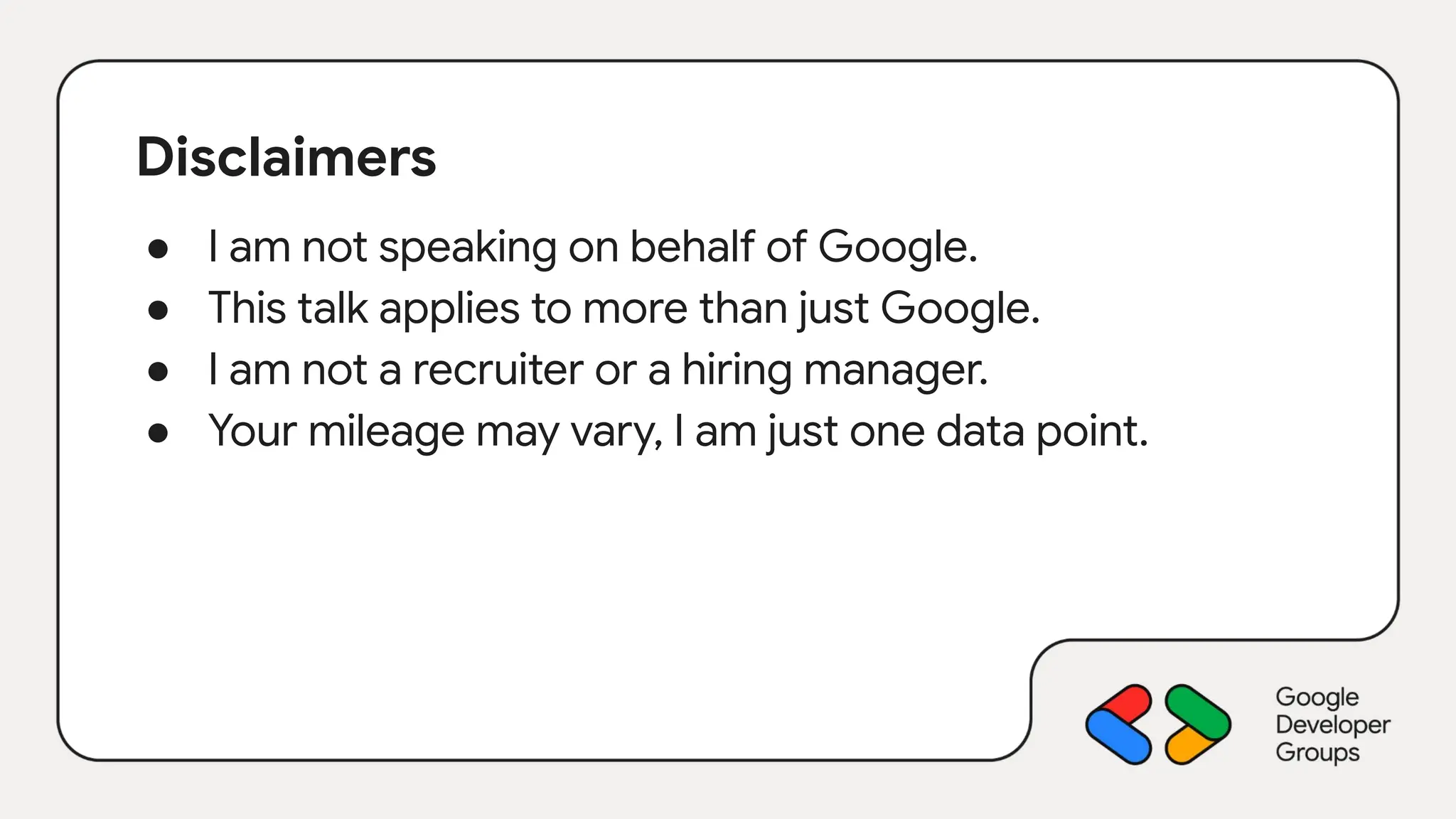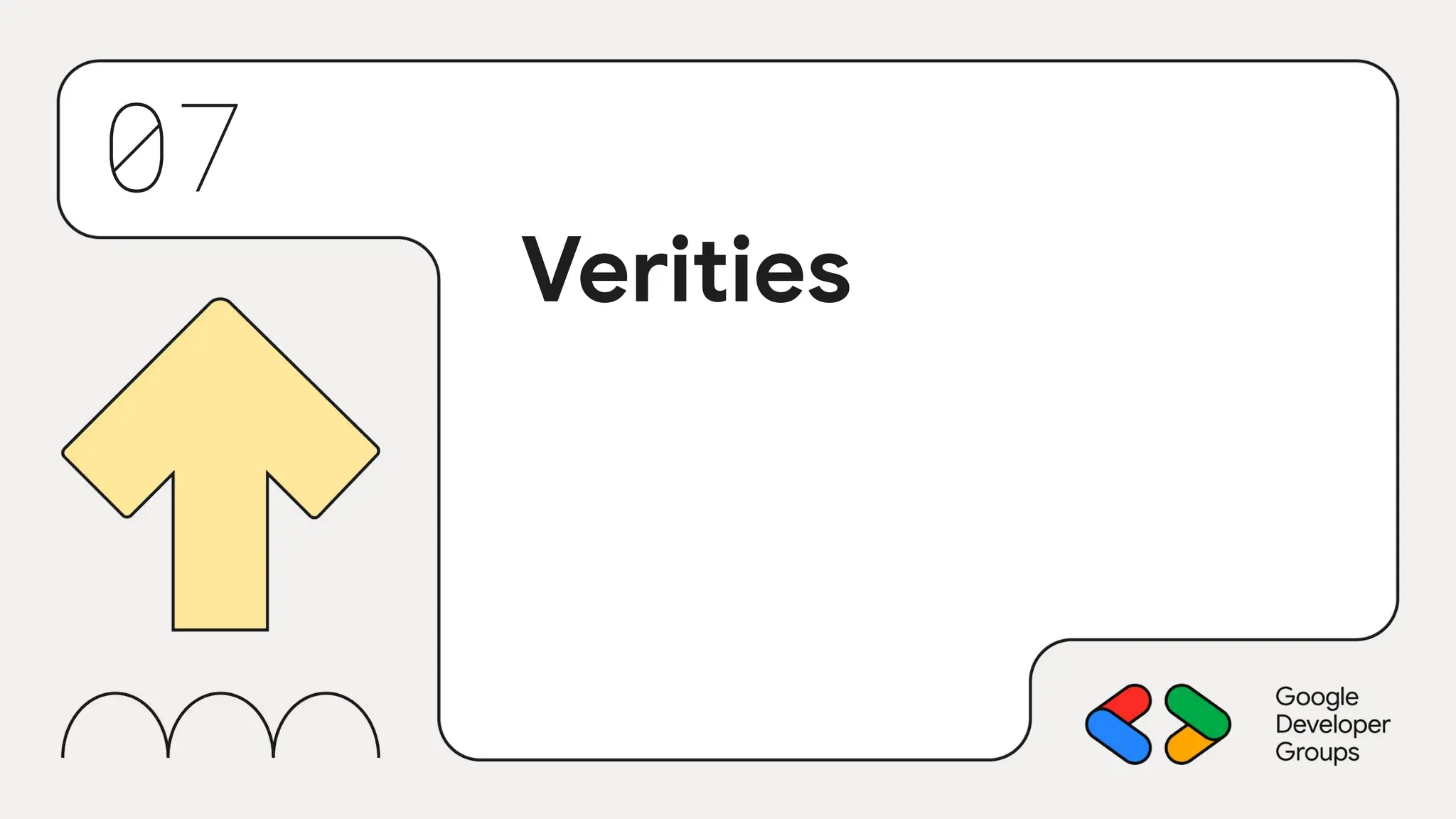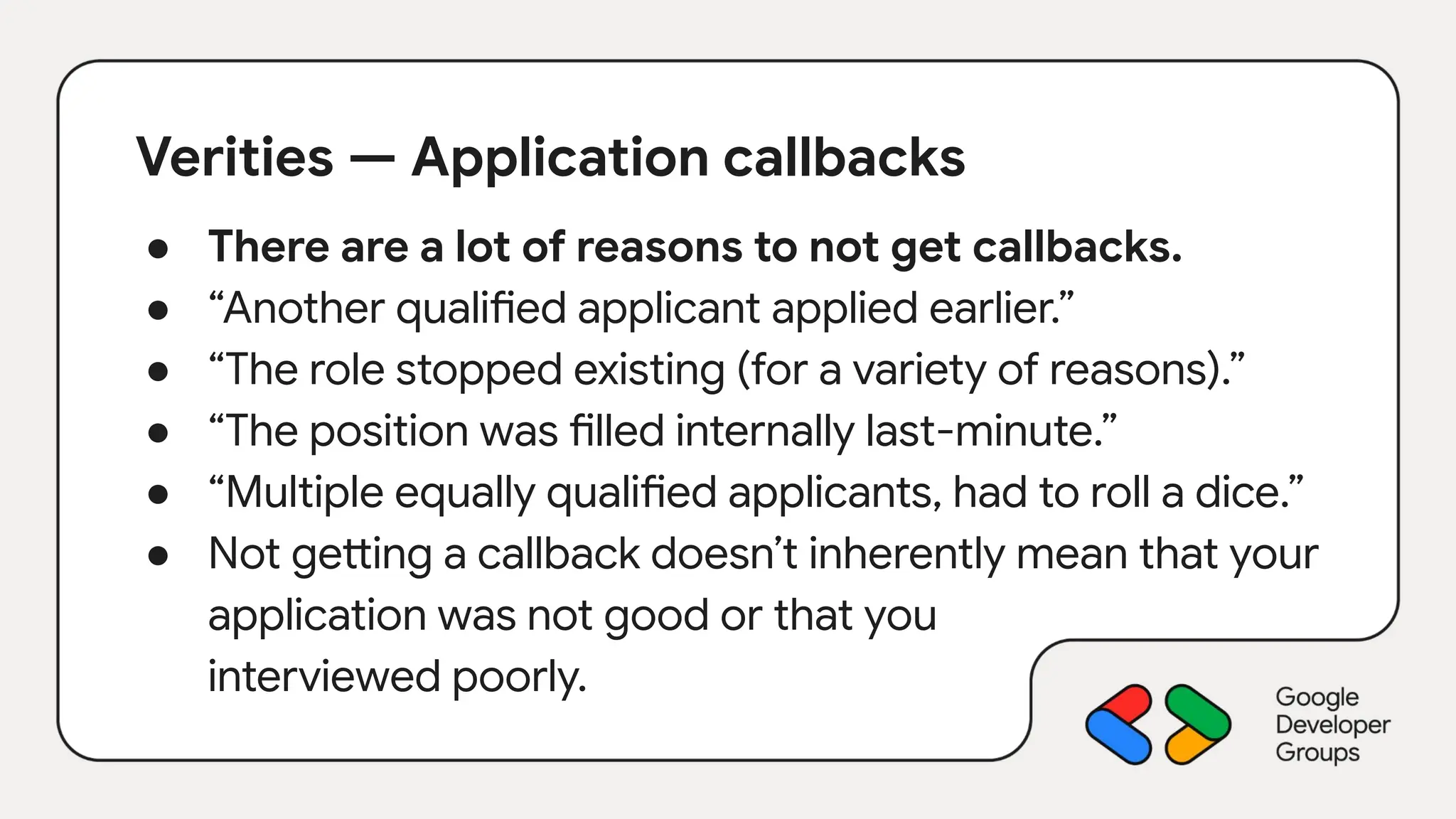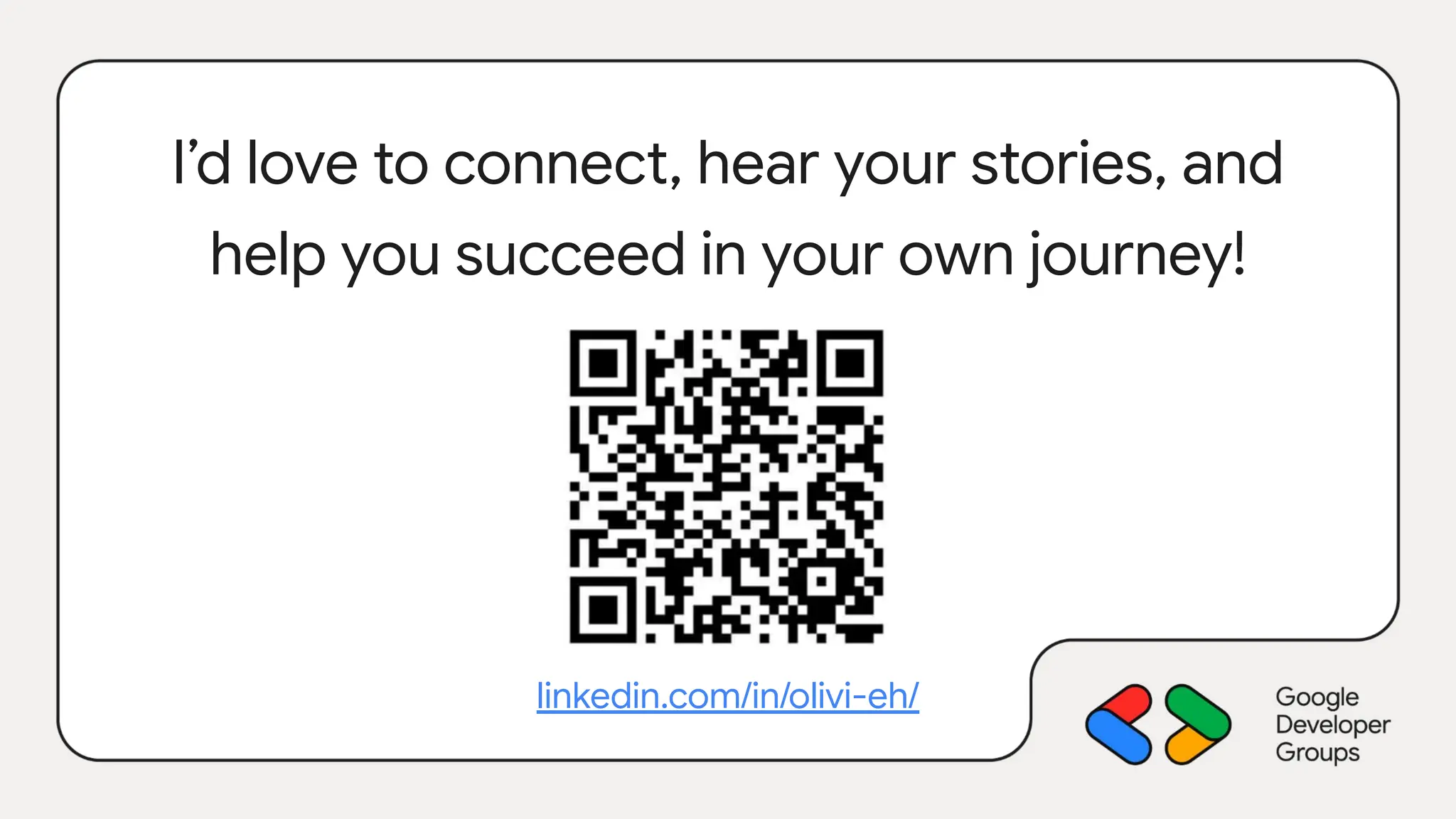This is a talk presented by Olivier Bourgeois at DevFest Seattle 2025:
For many developers, working at Google is a top career goal. But how do you get there, beyond the typical "do more LeetCode" advice?
Drawing from my own winding journey to a role at Google, I'll demystify the entire process—from studying and applying to interviewing. I'll share some uncomfortable truths but also some comforting advice I learned along the way.
Whether you're a student or a seasoned pro, you'll leave this session with a clearer roadmap and actionable advice for your own journey.


































